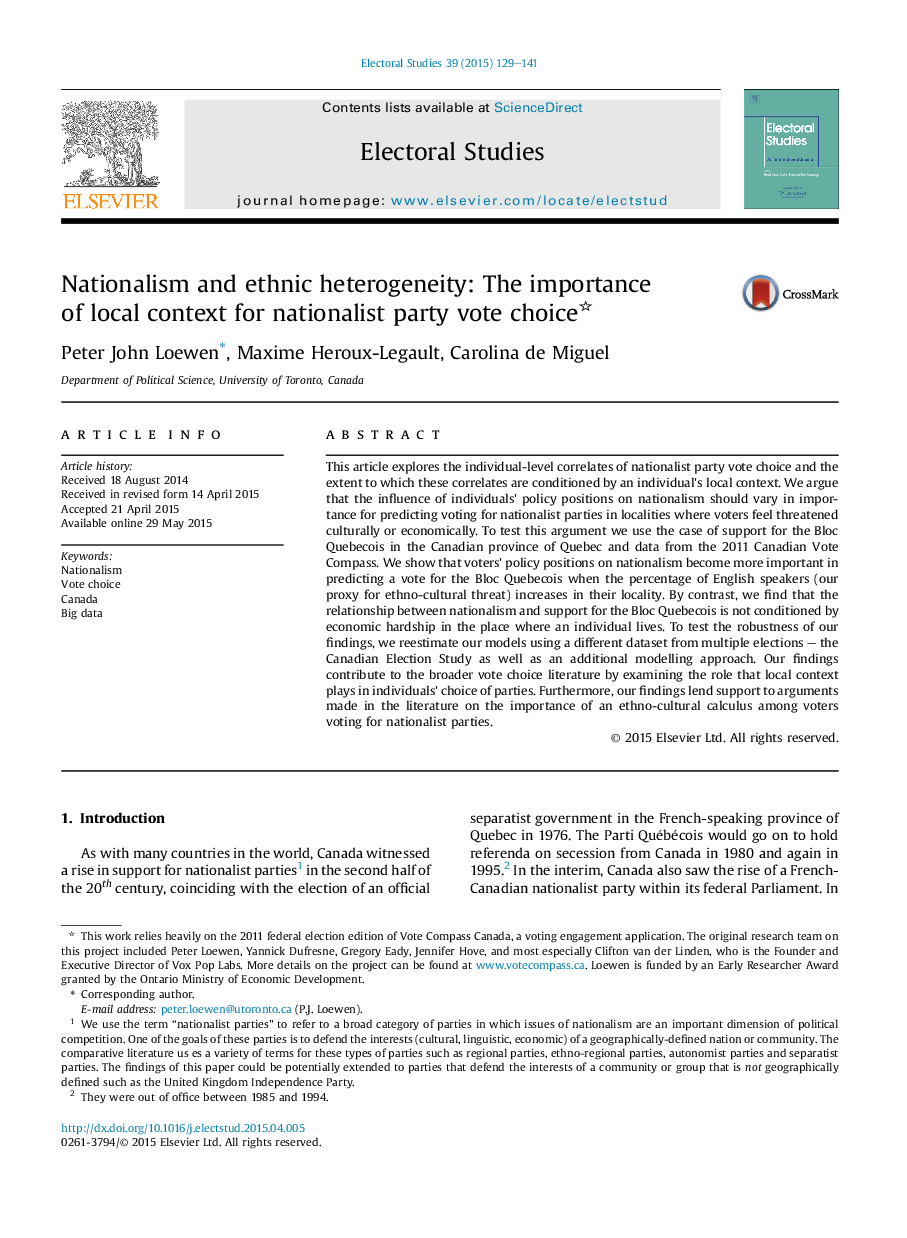| Article ID | Journal | Published Year | Pages | File Type |
|---|---|---|---|---|
| 7464104 | Electoral Studies | 2015 | 13 Pages |
Abstract
This article explores the individual-level correlates of nationalist party vote choice and the extent to which these correlates are conditioned by an individual's local context. We argue that the influence of individuals' policy positions on nationalism should vary in importance for predicting voting for nationalist parties in localities where voters feel threatened culturally or economically. To test this argument we use the case of support for the Bloc Quebecois in the Canadian province of Quebec and data from the 2011 Canadian Vote Compass. We show that voters' policy positions on nationalism become more important in predicting a vote for the Bloc Quebecois when the percentage of English speakers (our proxy for ethno-cultural threat) increases in their locality. By contrast, we find that the relationship between nationalism and support for the Bloc Quebecois is not conditioned by economic hardship in the place where an individual lives. To test the robustness of our findings, we reestimate our models using a different dataset from multiple elections - the Canadian Election Study as well as an additional modelling approach. Our findings contribute to the broader vote choice literature by examining the role that local context plays in individuals' choice of parties. Furthermore, our findings lend support to arguments made in the literature on the importance of an ethno-cultural calculus among voters voting for nationalist parties.
Keywords
Related Topics
Social Sciences and Humanities
Social Sciences
Geography, Planning and Development
Authors
Peter John Loewen, Maxime Heroux-Legault, Carolina de Miguel,
